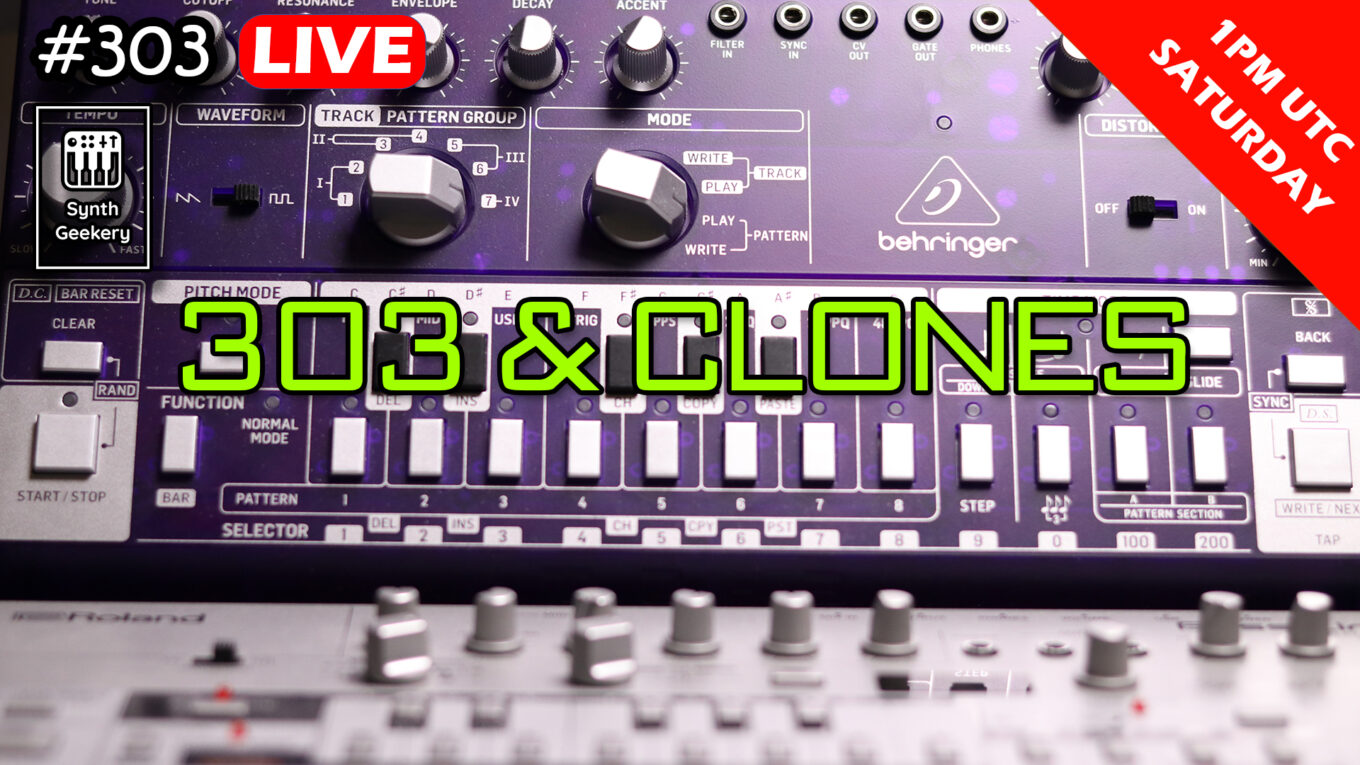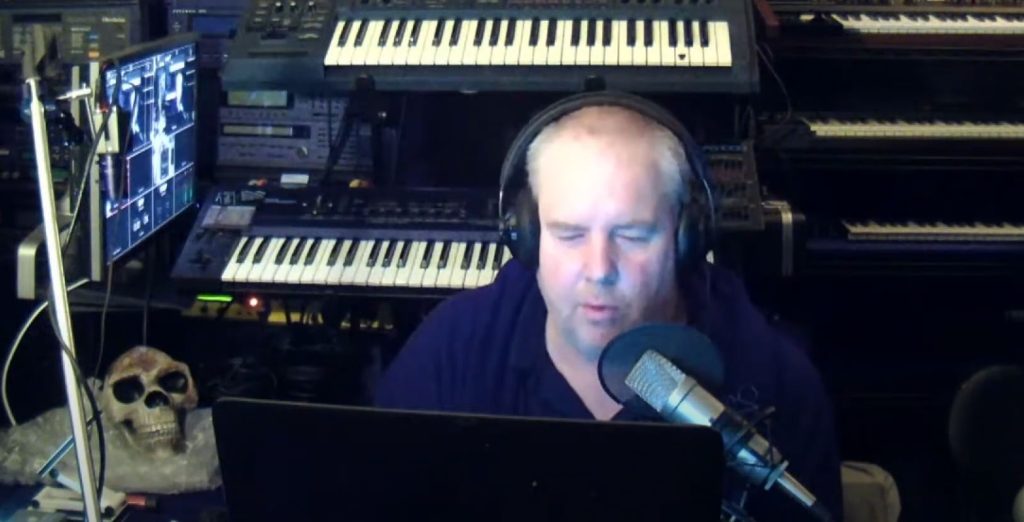Synth Geekery 303
In episode 303 we talked about the famous Roland TB-303 Bass Line Acid Synthesizer. As well as other synths, eurorack, sequencers, drum machines, samplers, effects and software! Plus all the usual segments! Funny Side, News from the Geekery, Price Watch, Name that Synth …

Show contents:
- About
- Guests
- Video replay
- Funny Side
- News from The Geekery
- Price Watch
- Name that Synth
- Saturday Sonority
About the Synth Geekery Show
Synth Geekery is a weekly podcast/live stream (YouTube) show about everything synthesizers, drum machines, samplers, sequencers, eurorack and music technology. We take the “one of the masses” viewpoint, where we are also users of gear just like you (read: we’re not influenced by commercial product placement).
The show relies on the generous contributions of the synth community. You can contribute in many ways including supporting us via our YouTube Channel Membership or Patreon. We also have regular and special video guests: if you would like to take part in future shows – please contact me via email on the about page here.
Your Host
Ranzee (Ranz Adamson) is your show host. He’s based in Perth, Western Australia and has been a hobbyist musician and technologist for most of his life. More information can be found about him here.
YouTube: https://www.youtube.com/ranzee
BandCamp: https://ranzee.bandcamp.com
Guests
This week’s video guests are:
JX3D – aka Henrik
Bandcamp Link: https://jx3d.bandcamp.com/
Youtube: https://www.youtube.com/@JX3D
Henrik resides in Denmark and is a great supporter of the Synth Geekery show and channel. He works in production and has a great album collection over on BandCamp.
SynthAddict
Andy is a musician and technologist from the bay area in California. He has an amazing collection of music tech gadgets and a large knowledge of synthesizers.
Youtube: https://www.youtube.com/channel/UCUtABvP7q29uvLKi73zIjFQ
Ian J. Cole
Ian is a musician, composer, sound designer and producer currently producing solo ambient electronic music. He also runs Sinners Music which is a Record Company and Online Music Retailer in East Yorkshire, England
Youtube: https://www.youtube.com/c/IanJCole
Chris – Maikshifter
Chris is a musician and technologist from Perth, Western Australia. He’s always had a love for creating and tinkering with music electronics and has recently embarked on a new journey creating eurorack modules.
Youtube: https://www.youtube.com/@Maikshifter
Video replay
Funny Side
The funny side segment is a collection of memes that are somewhat relevant to the synth geekery community. Some of these images are taken from Facebook, Instagram and other social media sources. Please respect the creators. Hope you enjoy this week’s selection:


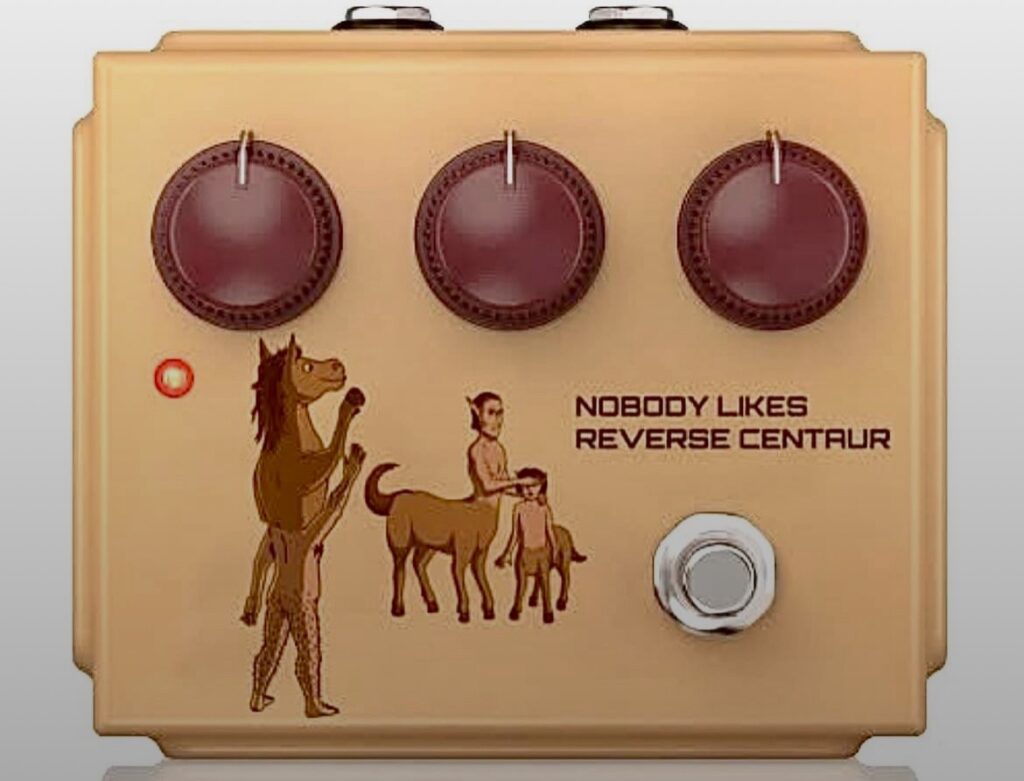
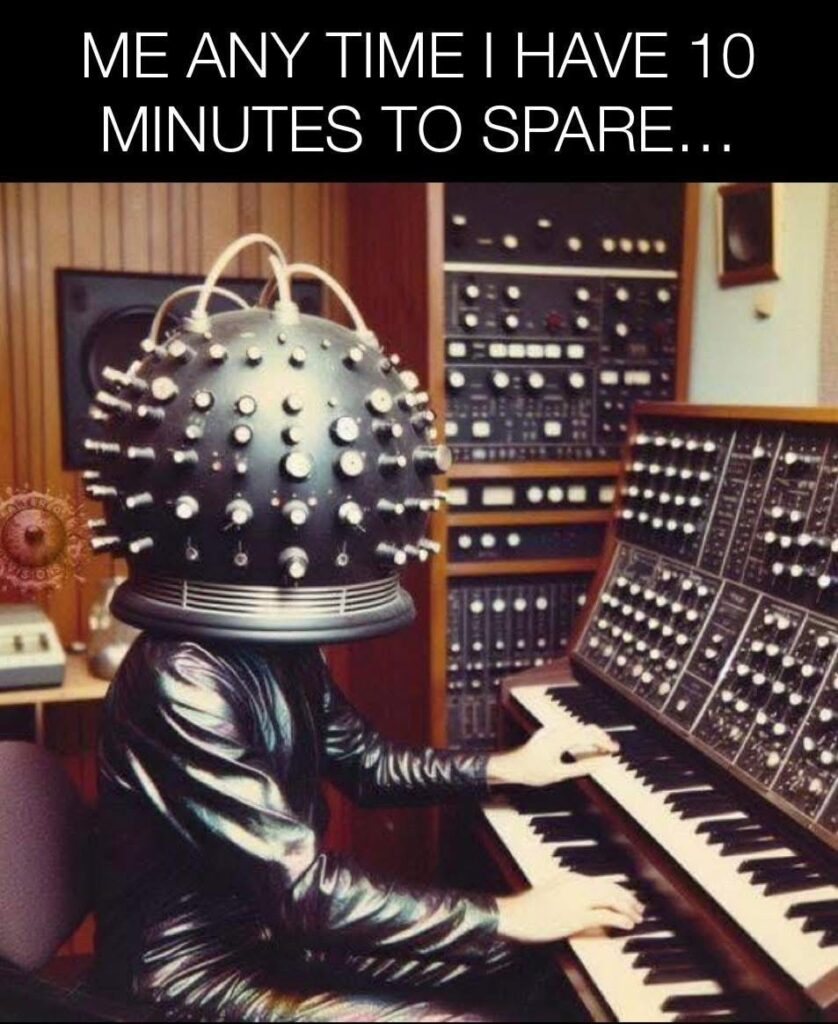
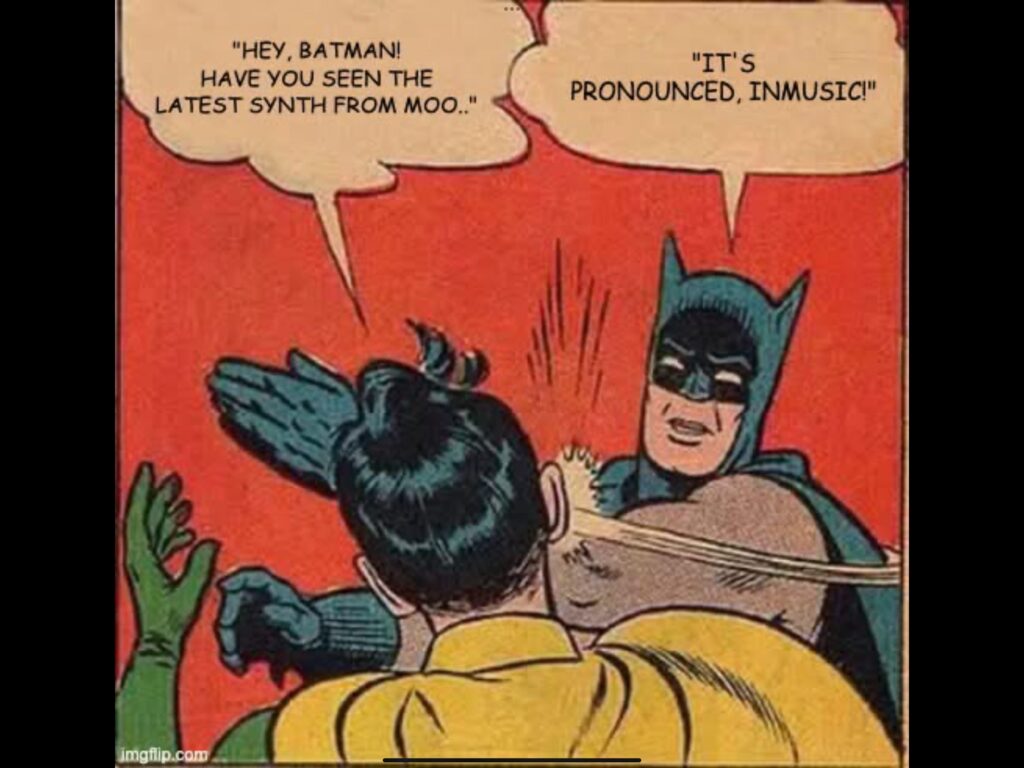

News
Pittsburgh Modular release 3 new modules
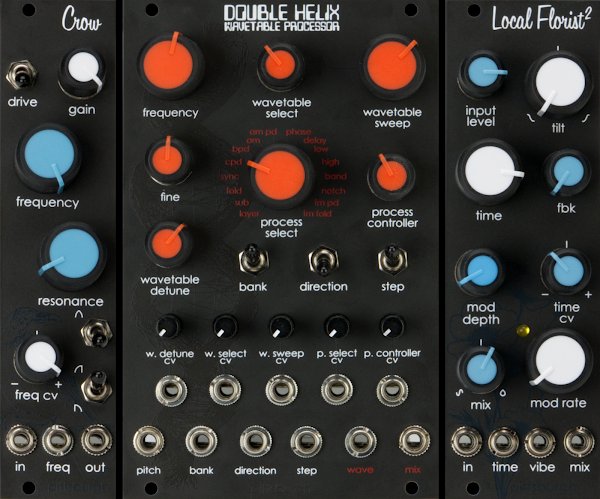
See below for information:
Pittsburgh Modular Local Florist2

The Pittsburgh Modular Local Florist 2 is an experimental Eurorack effects module designed to create a wide array of delay-based textures through analog circuitry and a refined feedback system. Building upon the original Local Florist, this second iteration introduces enhanced feedback capabilities and a tilt control for shaping the frequency response of the wet signal.
🎛️ Key Features
Analog BBD Delay Core: Employs a bucket brigade device (BBD) chip with a delay range of 6.2ms to 28.5ms.
- Expanded Feedback Circuit: Allows for more extensive feedback manipulation before reaching self-oscillation.
- Tilt Control: Adjusts the frequency response of the wet signal, enabling tonal shaping of the effect.
- Versatile Effects Palette: Capable of producing flanging, chorus, reverb, spring-like feedback, vibrato, plucky percussive string sounds, and other experimental textures.
- Compact Design: Occupies 8 HP in a Eurorack system, with a depth of 24mm.
- Power Requirements: Draws 45 mA on +12V and 37 mA on -12V rails.
💵 Price & Availability
Availability: Released on July 2, 2025, as part of Pittsburgh Modular’s Safari Series 9. Due to its experimental nature, production is limited.
Retail Price: $199 USD.
Links:
Manufacturer’s Site: https://pittsburghmodular.com/modules
Modular Grid: https://modulargrid.net/e/pittsburgh-modular-local-florist-2
Pittsburgh Modular Double Helix Wavetable Processor
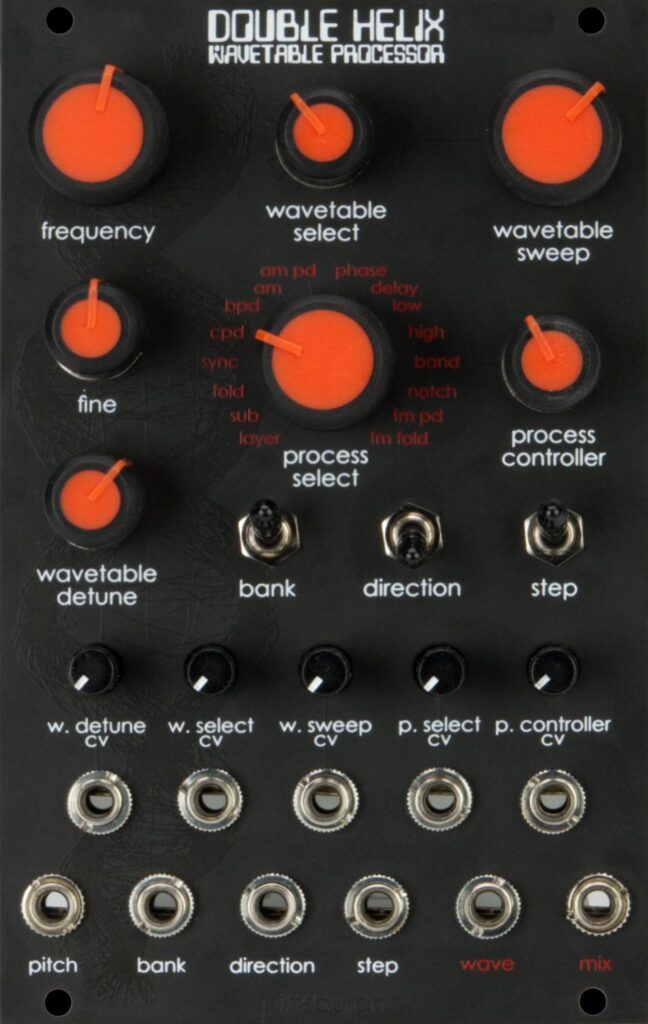
The Pittsburgh Modular Double Helix Wavetable Processor is a distinctive Eurorack module that blends digital wavetable synthesis with integrated effects processing, offering a lo-fi, experimental sound palette.
🔧 Key Features
- 9-bit Digital Wavetable Oscillator: Delivers a characteristically gritty and chaotic tone, reminiscent of vintage digital synthesizers.
- Dual Banks of Wavetables: Features 2 banks, each containing 16 sweepable wavetables, providing a total of 32 unique waveforms for extensive sonic exploration.
- Integrated Effects Processor: Includes 16 distinct effects modes, such as FM, wavefolding, sync, and delay, all controllable via a modulatable interface.
- Unique 9-bit Resistor Ladder DAC: Contributes to its distinctive lo-fi character and sonic texture.
- Compact Design: Housed in a 16HP module, making it suitable for various Eurorack setups.
- Authentic Reissue: Faithfully replicates the original prototype’s circuitry and code, preserving its unique sound and behavior.
- Voltage Tracking: Exhibits fair to poor volt-per-octave tracking above F#5, consistent with the original design’s characteristics.

💵 Price & Availability
- Price: USD $299
- Availability: Currently available in limited quantities through the pittsburgh modular store
📅 Release History
- Original Prototype: Developed around 2015, with only 5 or 6 units produced.
- Reissue: Released in 2025 as part of Pittsburgh Modular’s “Safari” series, which showcases experimental and limited-run modules.
Links:
Manufacturer’s Site: https://pittsburghmodular.com/modules
Modular Grid : https://modulargrid.net/e/pittsburgh-modular-double-helix-wavetable-processor
Pittsburg Modular Crow 3

The Pittsburgh Modular Crow 3 is the latest evolution in the company’s Safari Series of Eurorack modules, blending a high-gain preamp with their signature PGH filter to deliver a versatile and expressive sound-shaping tool.
🔧 Key Features
- Ultra-High Gain Preamp: Incorporates a custom limiting circuit that offers substantial overdrive capabilities without introducing harshness. The preamp can be bypassed for cleaner tones.
- 12dB State Variable Filter: Features Pittsburgh Modular’s refined PGH filter, known for its smooth, dead-spot-free frequency sweeps.
- Selectable Filter Modes: Allows manual selection and stacking of lowpass, bandpass, and highpass filter responses for complex parallel processing.
- Compact Design: Occupies 6 HP of rack space with a depth of 24 mm, making it suitable for various Eurorack setups.
- Power Consumption: Draws 48 mA on +12V and 20 mA on -12V rails.
💰 Price & Availability
- Price: $199 USD
- Availability: Currently available through Pittsburgh Modular’s official website and authorized dealers.
📅 Release Information
The Crow 3 was introduced as part of Pittsburgh Modular’s Safari Series 9, which was announced in early July 2025.
Links:
Site: https://pittsburghmodular.com/modules
Modular Grid: https://modulargrid.net/e/pittsburgh-modular-crow-3
After Later Audio Bartender V2 Mixer and expander series
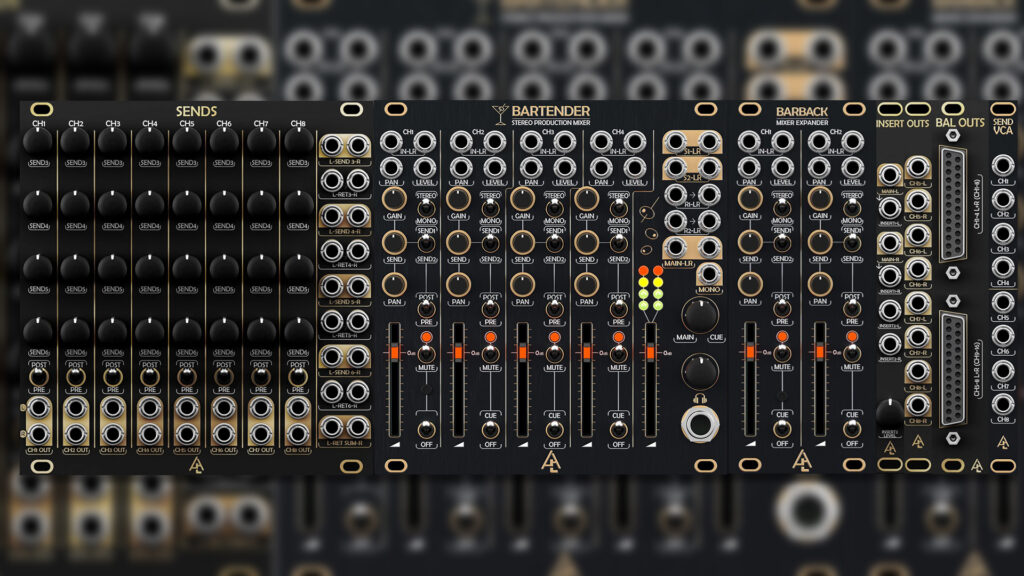
The After Later Audio Bartender V2 is a modular mixer system designed for Eurorack setups, offering a flexible and expandable solution for live performance and studio mixing. The system comprises the main Bartender V2 module and several expanders, including the Barback V2 and Send VCA, allowing users to tailor the mixer to their specific needs.
Core Mixer Moduler (V2)
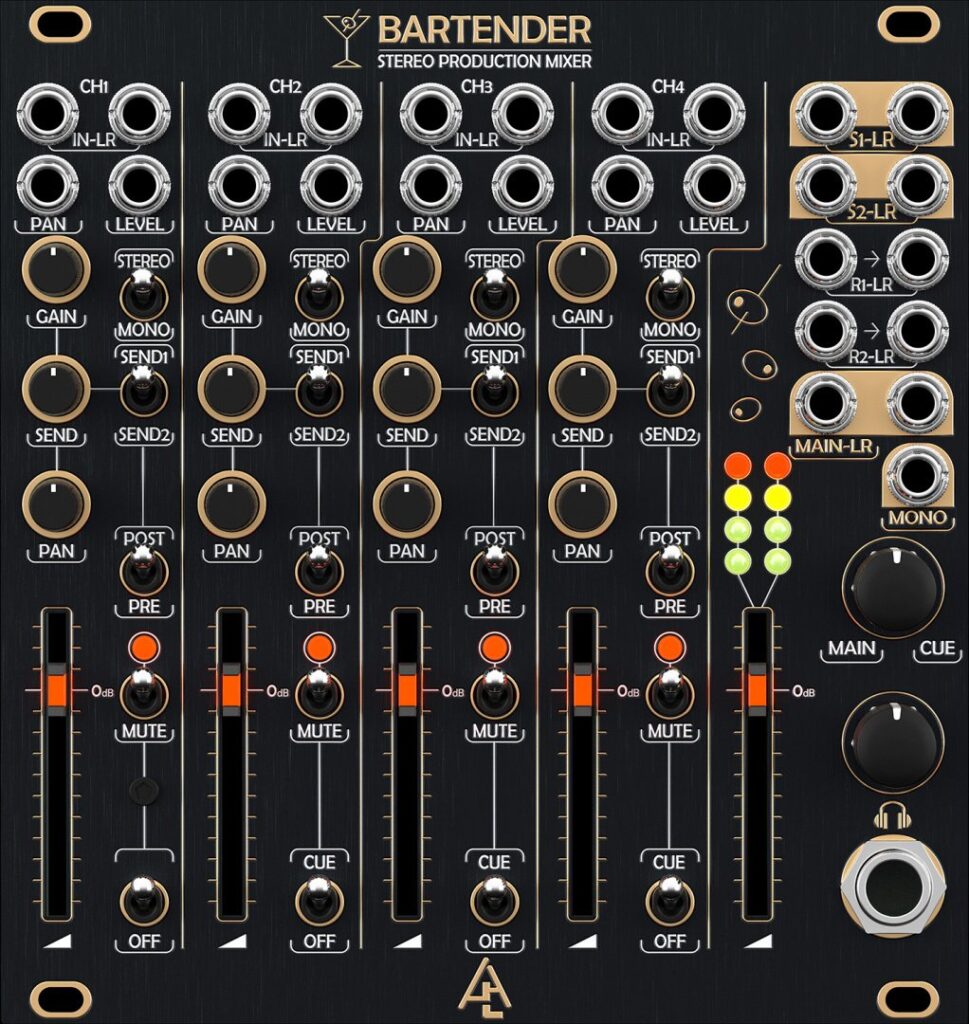
🧃 Bartender V2 – Core Mixer Module
The Bartender V2 serves as the centerpiece of the mixer system, providing four stereo channels with comprehensive mixing features.
Key Features:
- Four stereo channels, each configurable for mono operation
- Two stereo auxiliary sends and two stereo returns
- Built-in cue system with headphone output and blend control
- CV inputs for level and pan control
- Mute switches with momentary or latching functionality
- Pre/post fader routing for sends
- Expandable via headers for additional modules like SENDS, EQ, Main Insert, and Direct Outs
- Improved audio performance with reduced bleed and crosstalk compared to Version 1
- 24 HP, 35mm deep.
Price: $360 USD
Release Date: April 2025
Barback V2 Mixer Expander
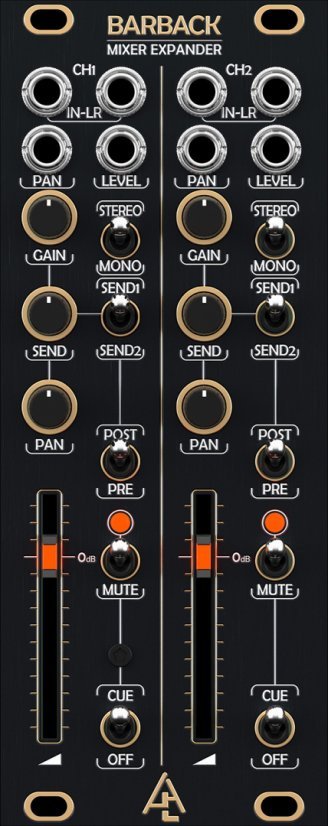
🧊 Barback V2 – Channel Expander
The Barback V2 is a two-channel expander module that integrates seamlessly with the Bartender V2, allowing users to increase the number of input channels. It can also be used as a stand alone or connected to other Barbacks and Bartender setups.
Key Features:
- Adds two additional channels to the Bartender V2
- Supports cascading multiple Barback modules for up to 16 channels
- Each channel can be configured for stereo or mono operation
- Expansion headers for SENDS, EQ, Main Insert, and Direct Outs
- 10 HP 135mm deep
Price: $160 USD
Release Date: April 2025
Send VCA

🎛️ Send VCA – CV-Controlled Send Module
The Send VCA module provides voltage-controlled amplification for the send levels, offering dynamic control over effects routing.
Key Features:
- CV control over send levels
- Integrates with the Bartender V2 and Barback V2 modules
- Compact 2HP design
Price: $200 USD
Release Date: Late May 2025
Bal Outs

🔌 After Later Audio Bal Outs
Price: $220 USD
Release Date: Mid 2025
Purpose: Provides balanced outputs for Bartender V2 and Barback V2.
Key Features:
- Supports four stereo channels on each DB-25 connector, totaling eight stereo channels
- Utilizes DRV135 chipset for top audio performance and support for longer cable runs
- Can be used for either the PRE or POST channel outputs, depending on the pin header connection
- Depth: 30mm; Width: 4HP; Power Consumption: +12V: 100mA, -12V: 100mA
Sends
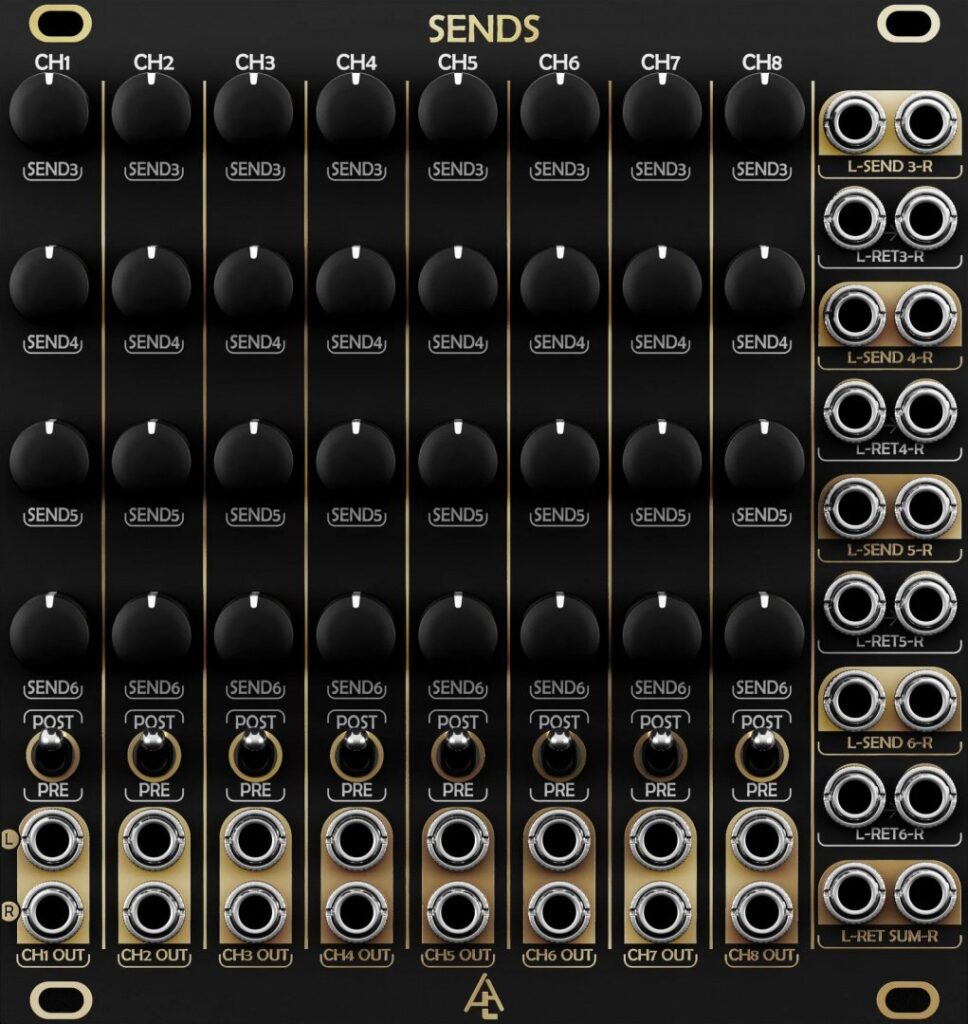
🌊 After Later Audio Sends
The After Later Audio Sends module can be used in 2 different modes:
- Add four send/return channels. When connect with the ribbon cable to the Bartender V2 or Barback V2 module it adds four send and return buses.
- or as a stereo matrix mixer. When connected without the ribbon cable, it acts as a 4×8 stereo matrix mixer. Simply use the direct outputs as inputs.
Key Features:
- Breaks out pre/post-fader aux sends per channel
- Direct 3.5mm outputs for each channel. The output jacks follow the pre/post selection.
- Integrates via rear expansion headers
- Offers direct access to send routing for external processing
- Offers second option as a matrix 4×8 stereo mixer
- 24 HP
Price: Approx. $100 USD
Release Date: May 2025
Product link: https://afterlateraudio.com/products/sends
Inserts

🛠️ After Later Audio Inserts
Price: Approx. $90 USD
Release Date: May–June 2025
Purpose: Provides insert points for each channel and master bus.
Key Features:
- Adds TRS-style insert functionality (send/return) per channel
- Great for integrating outboard gear like compressors, EQs, or FX
- Connects via internal ribbon cables to the Bartender or Barback
- Enables pre-fader or post-fader effects chains
Outs

🔈 After Later Audio Outs
Price: Approx. $120 USD
Release Date: Mid 2025
Purpose: Main stereo output interface for the system.
Key Features:
- Balanced stereo output for studio or stage
- Headroom and level-matched output stages
- Connects to master output of Bartender V2
- Optional cue blend/headphone amp passthrough
🧩 Modular Expansion Ecosystem
The Bartender V2 system is designed with modularity in mind, allowing users to customize their mixer setup:
- Scalability: Combine multiple Bartender and Barback modules to create mixers with 8, 12, or 16 channels.
- Expandable Features: Add modules like SENDS, EQ, Main Insert, and Direct Outs for enhanced functionality.
- Compatibility: Version 2 modules can connect with Version 1 units; however, Version 1 units won’t support new expander features.
Links:
Site: https://afterlateraudio.com/
Korg Kronos 3

The Korg Kronos 3 marks the triumphant return of Korg’s flagship music workstation, combining enhanced performance capabilities with a familiar interface. Reintroduced at NAMM 2025, the Kronos 3 builds upon its legacy with significant hardware and software upgrades, catering to both stage performers and studio producers.
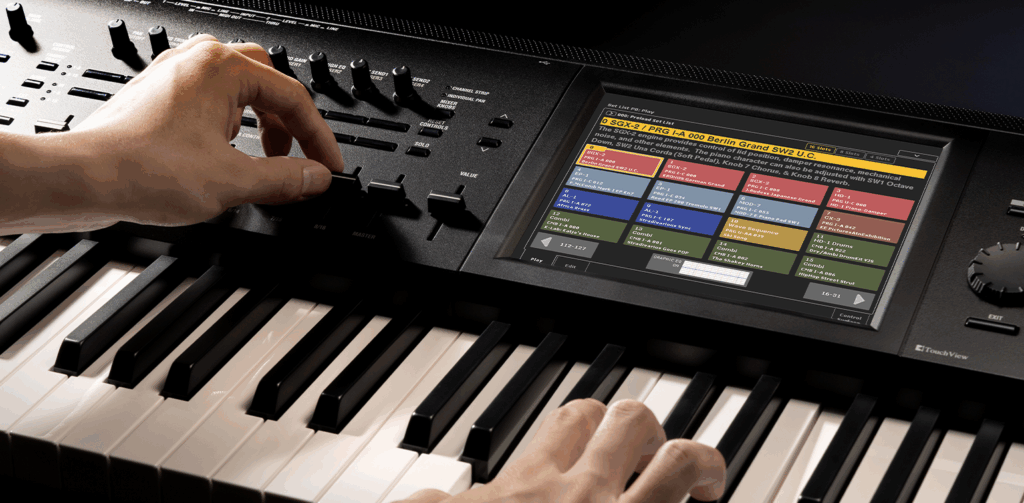
🎹 Key Features
- Nine Versatile Sound Engines: Includes SGX-2 (acoustic piano), EP-1 (electric piano), MOD-7 (FM synthesis), AL-1 (analog modeling), and more, offering a wide sonic palette.
- Expanded Sound Library: Preloaded with over 300 premium programs, featuring new additions like the Italian Grand piano and Tine EP I Early electric piano.
- Enhanced Performance: Boasts a 60% faster startup time and a more responsive TouchView interface, ensuring seamless operation.
- Robust Hardware: Equipped with a new Intel Atom processor, 3GB RAM, and a 128GB SSD, facilitating smooth multitasking and ample storage.
- User-Friendly Interface: Features an 8″ color TouchView display, 8 real-time knobs, and 9 sliders for intuitive control.
- Comprehensive Sequencing: Offers a 16-track MIDI sequencer and a 16-track audio recorder, suitable for complex compositions.
- Keyboard Variants: Available in 61-key semi-weighted, 73-key RH3 weighted, and 88-key RH3 weighted versions to suit different playing preferences.
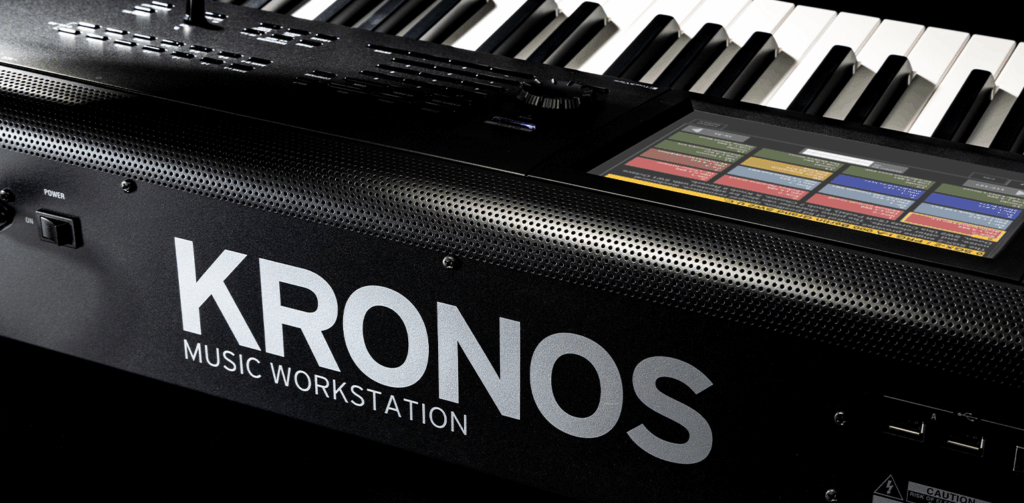
These models can be found through Australian retailers such as Belfield Music, DJ City, and Scarlett Music. For local availability in Perth, you might also explore platforms like Gumtree.
💵 Korg Kronos 3 Pricing (as of July 2025)
| Model | 🇬🇧 UK Price (GBP) | 🇺🇸 US Price (USD) | 🇦🇺 Australia Price (AUD) |
|---|---|---|---|
| 61-Key | ~£2,649 | ~$3,399.99 | ~$4,699 |
| 73-Key | ~£2,949 | ~$3,699.99 | ~$4,999 |
| 88-Key | ~£3,199 | ~$3,999.99 | ~$5,699 |
Notes:
- UK prices are based on listings from retailers such as Gear4music and A&C Hamilton .
- US prices are sourced from retailers like Sweetwater and Guitar Center .
- Australian prices are approximate and based on available listings .
Please note that prices may vary based on retailer, location, and any ongoing promotions.
📅 Release Information
The Kronos 3 was officially unveiled at NAMM 2025 and has been available for purchase since early 2025. For existing Kronos and Nautilus users, Korg plans to release a Soundpack in the latter half of 2025, bringing the latest Kronos sounds to earlier models.
Link: https://www.korg.com/us/products/synthesizers/kronos3/
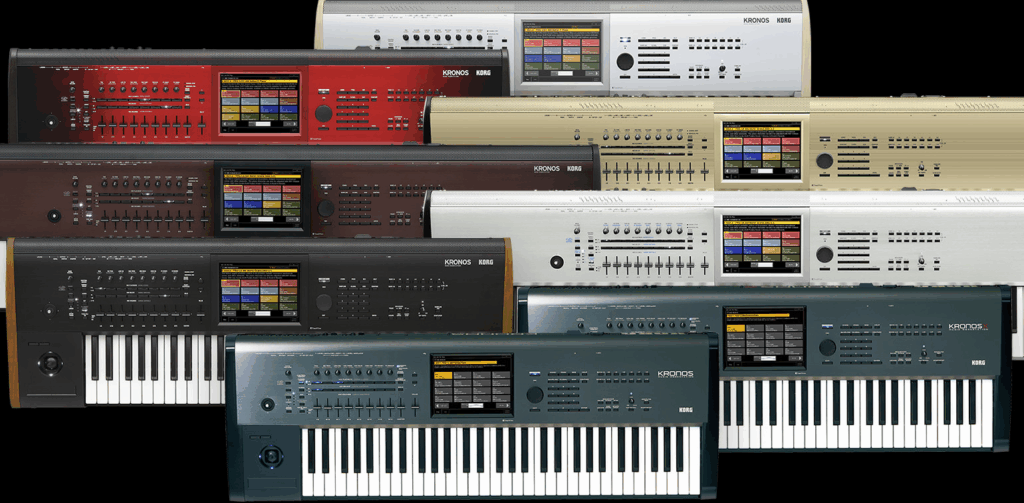
Price Watch
Find below images and links to the items we showed for the price watch segment.
| ARP 2600 | https://ebay.us/vboZTb |
| Yamaha CS5 | https://ebay.us/fAGr9o |
| Yamaha CS15 | https://ebay.us/pgdYC4 |
| Roland JX-8P | https://ebay.us/AESUQ9 |
| Sequential Circuits 620 | https://ebay.us/9aJcBy |
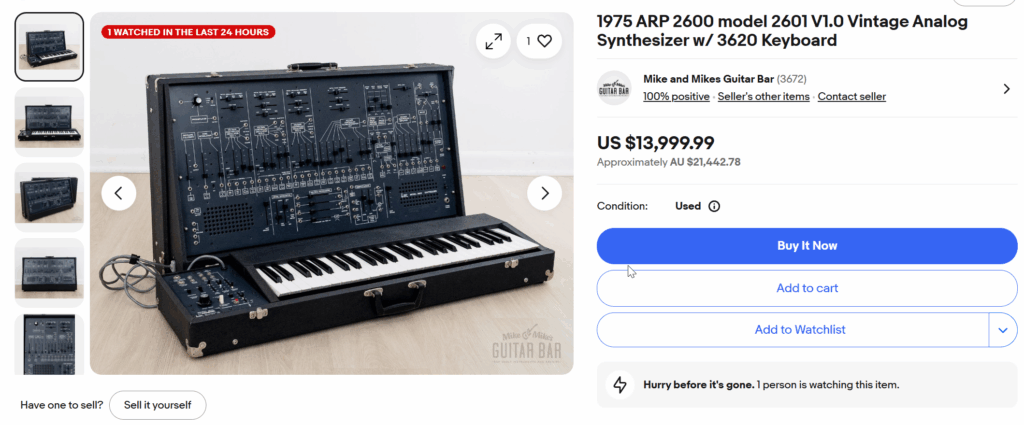
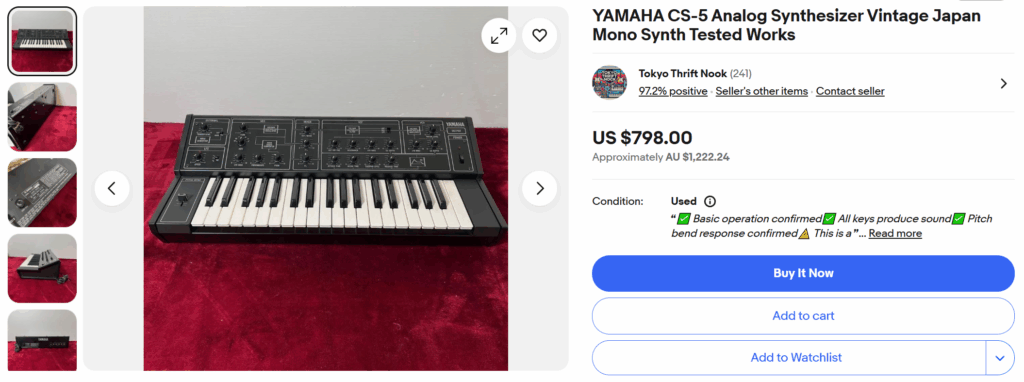
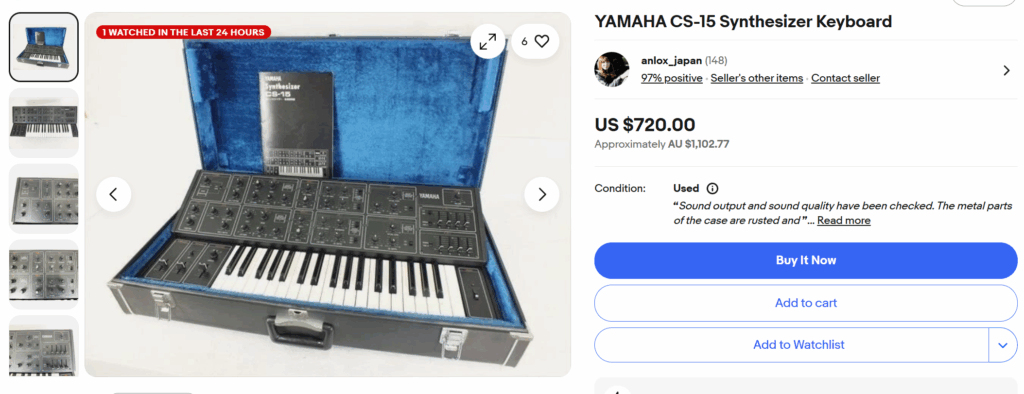
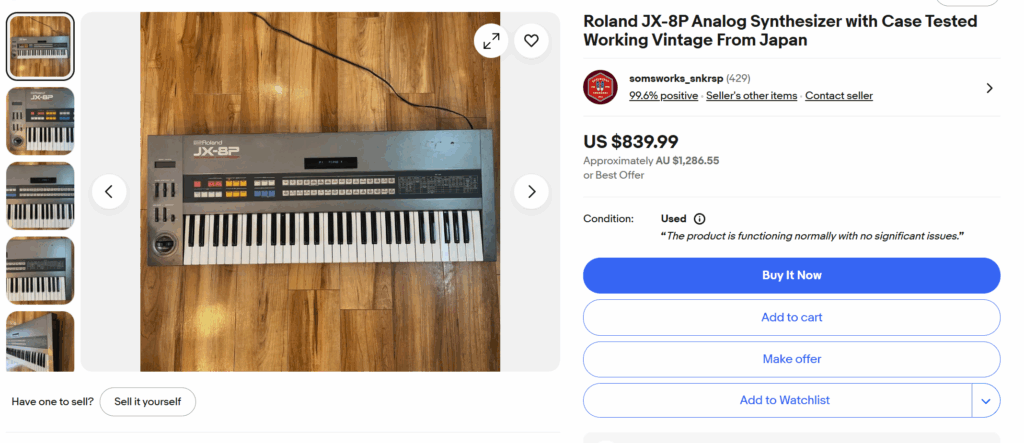
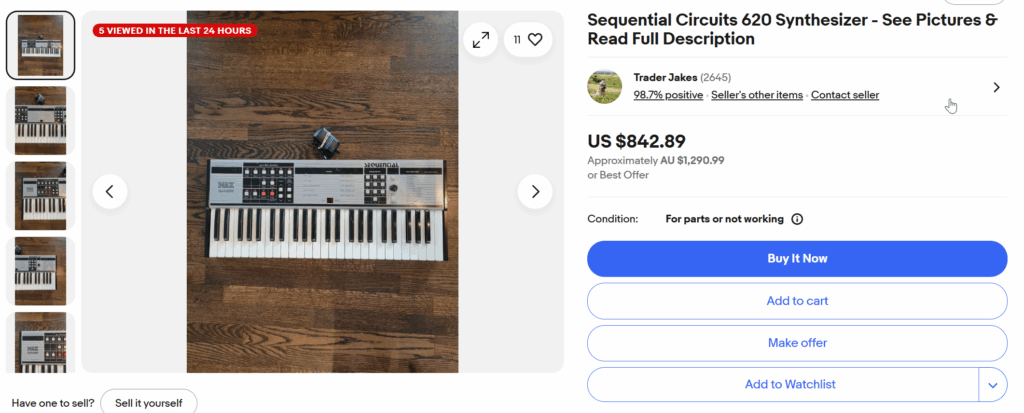
Name That Synth
This week the name that synth was brought to us by asiohead (cheers!):
If you are after more information about Name that Synth – please check out this page here.
Saturday Sonority
This week’s Saturday Sonority we might talking about the 303 legacy! The Roland TB-303 Bass Line synthesizer and all of the off-shoot clones and copies.
🎛️ The Timeless Pulse: A History of the Roland TB-303 and Its Clones

🔁 Birth of an Icon
In 1982, Roland Corporation released the TB-303 Bass Line, a small, silver, monophonic synthesizer designed to emulate bass guitars for solo musicians. “TB” stood for “Transistor Bass.” It was originally considered a commercial failure and discontinued by 1984 after just about 10,000 units were produced.
But what began as a failure soon became the foundation of a movement.
💥 Acid Explosion
In the late 1980s, underground Chicago producers like Phuture, DJ Pierre, and Adonis rediscovered the TB-303. Its squelchy resonance, sliding notes, and unpredictable sequencing made it the heart of a new genre: acid house.
Tracks like “Acid Tracks” (1987) by Phuture immortalised the 303 sound.
📈 Cult Status and Cloning Begins
As demand surged and vintage units became rare, manufacturers stepped in to clone or reimagine the 303.
🛠️ Key Clones and Inspirations Over the Years:
🧪 Novation Bass Station (1993)

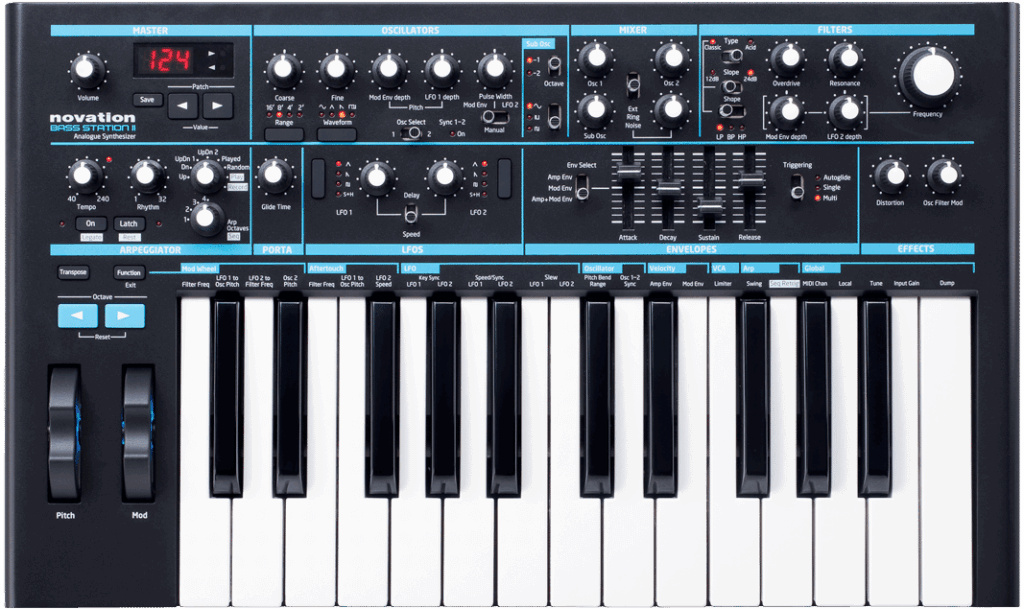
While not a direct 303 clone, Novation’s Bass Station offered acid-like tones and portable design, igniting the rebirth of analog monosynths. Novation also released the Bass Station II in 2013 with a vast amount of improvements to the original but kept the acid filter feature!
🧬 Future Retro 777 (1997)

A more feature-rich analogue synth inspired by the 303 with MIDI, CV/Gate, and filter drive.
🔁 x0xb0x by Adafruit / Ladyada (2005)

The x0xb0x was an open-source hardware project that replicated the original circuitry, even using rare parts where possible. It became a favourite for acid enthusiasts and DIYers.
🧪 Cyclone Analogic TT-303 (2013)

A faithful 1:1 clone of the original TB-303 with added MIDI, USB, and memory improvements. Later rebranded as Bass Bot.
🎛️ Roland TB-03 (Boutique) (2016)

Roland’s own digital reissue with modern features.
As part of Roland’s Boutique series, the TB-03 used their ACB (Analog Circuit Behavior) modeling to digitally emulate the original TB-303 sound. It added USB, delay/reverb FX, and step sequencing.
Roland also released a TB-3 as part of their AIRA series – which offered the ACB modelling for the TB-303 – but with a modern sequencer and performance interface.

🧠 Behringer TD-3 (2019)

A true budget clone in various colours.
Behringer brought an affordable analog clone to market with great success. The TD-3 was even released in multiple colours and variants, including the TD-3-MO (Modded Out) with Devil Fish-style modifications.

🎹 Software Clones & Emulations
Not to be left out, software developers have also created countless 303-inspired plugins:
- AudioRealism Bass Line 3 (ABL3)
- D16 Phoscyon
- Roland Cloud TB-303
- ReBirth RB-338 (Propellerhead – 1997) – A cult-favourite discontinued software
AudioRealism Bass Line 3 – A respected soft clone.
🧬 Evolution in the Modern Era
The TB-303 legacy now spans more than four decades, and its signature acid sound continues to influence genres from techno to trance, electro, and beyond.
Today, 303 clones can be found everywhere from modular systems (e.g., Erica Synths Bassline, DinSync RE-303) to iOS apps and Eurorack modules.
🧡 Final Thoughts
The TB-303 is a story of rebirth: a forgotten machine turned cultural catalyst. Its influence continues to pulse through dancefloors, studios, and DIY labs across the globe.
If you’re chasing that squelchy, hypnotic acid sound – there’s a 303 for you, whether original, clone, or software.

